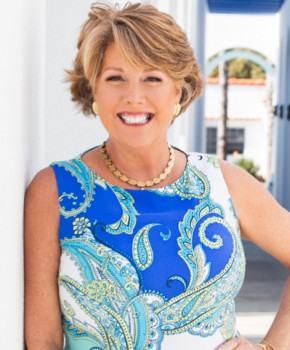
Imagine Financial Services: Financial Advisor - Marianne Nolte, Certified Financial Planner - Lake Havasu City, AZ
Reviews Summary
About This Listing
Who Can Work with a CPA?
*Note: CPAs may specialize in different areas. Be sure to check credentials and service offerings.*
First-Time Clients
If this is your first time working with a CPA, don’t worry — most professionals offer a free consultation and will walk you through what to expect. You may be asked to complete an intake form, share financial documents, or set clear goals for your session.
What to Know Upfront:
*Note: Every CPA operates a bit differently. Don’t hesitate to ask questions before committing.*
What to Bring
*Tip: Organize your documents in advance to save time and ensure accuracy.*
Preparing for Your Appointment
*Note: Preparation helps you make the most of your CPA’s expertise.*
How to Get Started
Other Helpful Info
*Note: Every CPA is different — take time to find one who fits your goals and style.*
Features
Contact Information
Address
4809 N Diana Ave
Lake Havasu City, Arizona 86404
Phone
+1 760-472-5155Hours
Customer Reviews
Marianne is so knowledgeable in finances. She is direct and upfront with your finances so you have a clear idea of what suits your financial needs best. And successfully! She has a suitable ease to her which allows you to open up confidently about something so personal such as...your money! Her information and output is truly invaluable! Do her assigned homework and see your possibilities unfold for the near future and the years to follow.
Professional, knowledgeable and personable. For many years I have experienced poor quality financial planners. My initial complimentary consultation with Marianne confirmed she was a great fit for me. She is the first financial planner that actually listened to me, understood my needs, and put them above herself. I now know the importance of finding the right fit when it comes to your financial future. I wish I would have found Marianne sooner. I'm finally on the right track to financial freedom as I e
Marianne is the perfect advisor for me because she not only cares about the hard financial facts (of course) but also is happy to advise on the softer aspects around money, such as lifestyle choices. Often in our meetings I find myself bouncing ideas off of her, and she helps to clarify my thinking with her well-reasoned suggestions based on her own experience. A winning combination of traits!
I wanted to take some time to say how impressed I am with Marianne Nolte. As an estate planning attorney I am constantly meeting with and speaking to new financial professionals. I very much respect and enjoy working with Marianne. She is intelligent, kind, knowledgeable, and always looking to learn and improve her already impressive skill set. She always responds to me in a timely manner (usually within minutes) and I have personally seen how deeply she cares for her clients. Thank you Marianne for al